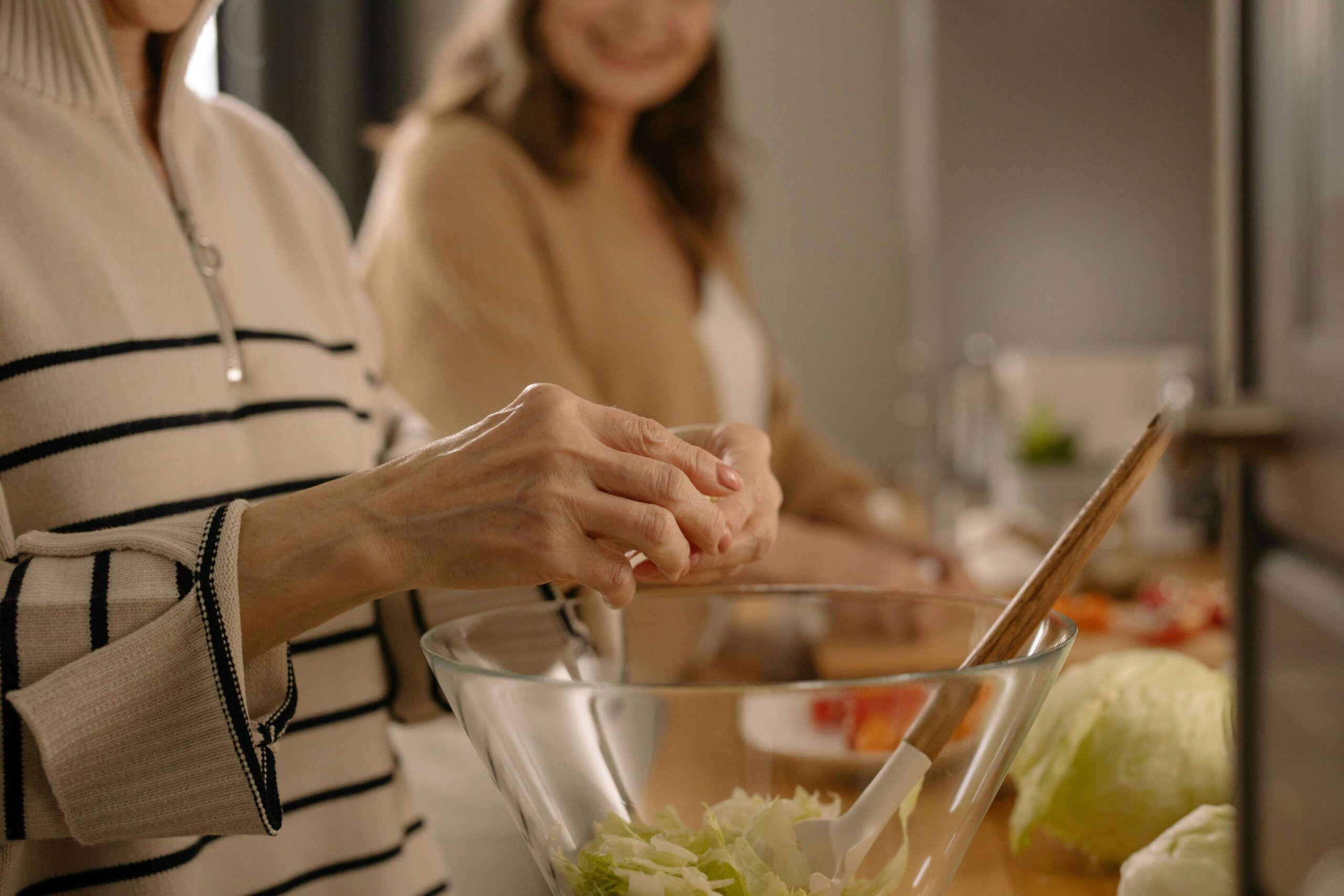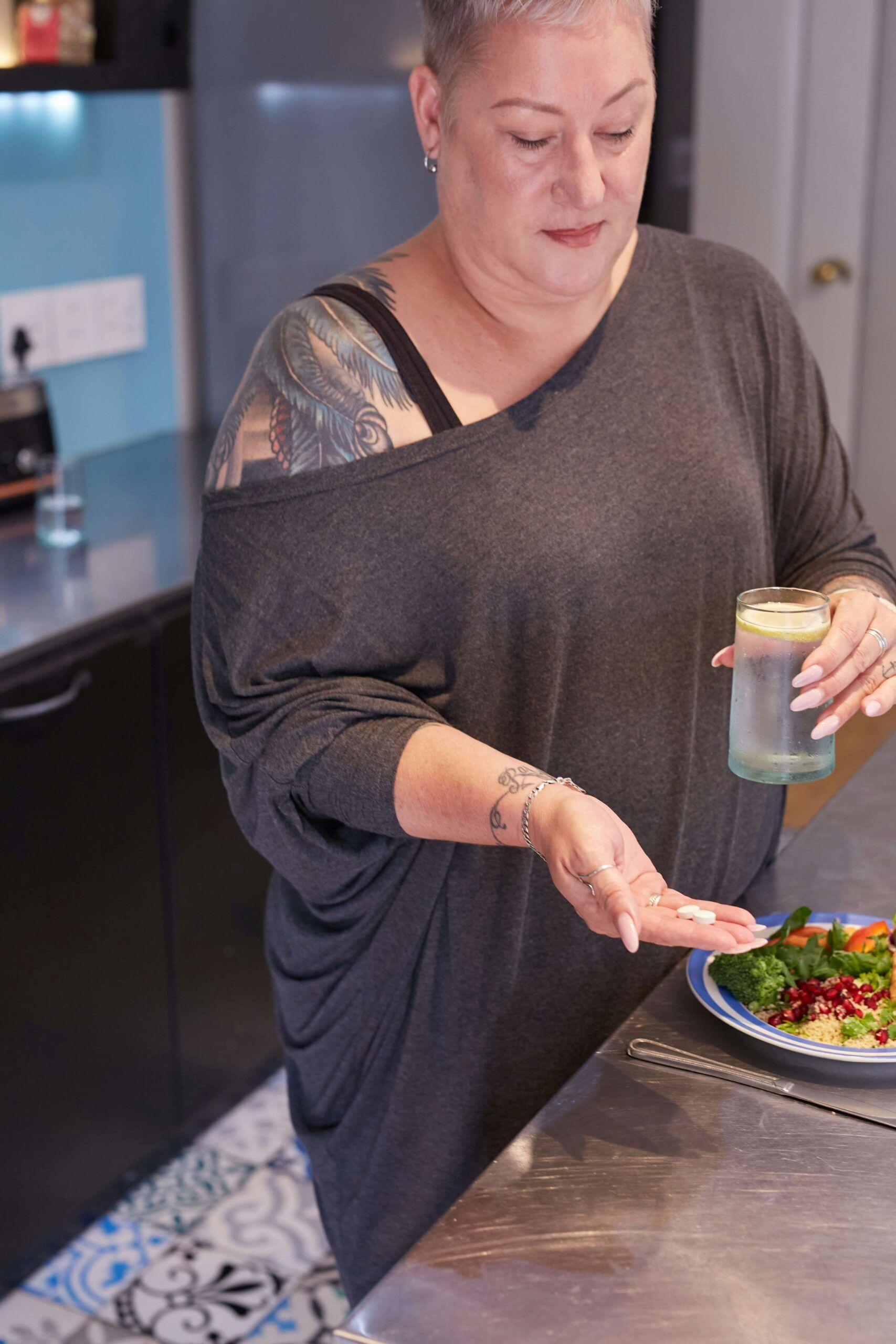Can I Eat Intuitively in Menopause? Yes—and a Registered Dietitian in Raleigh, NC Can Help You Start
Entering menopause can often feel like embarking on an unfamiliar journey without a clear guide. Your body undergoes significant changes, your emotions can feel like they’re on a roller coaster, and the nutrition guidance that once served you well might now seem out of sync. If you’re experiencing a sense of being overwhelmed or confused by these shifts, please understand that this is a common and valid feeling. You are truly not alone in this. Many women find this stage of life particularly perplexing, especially when it comes to navigating their relationship with food. The wonderful news is that a gentle, empowering path forward exists, and you don’t have to navigate it in isolation. Collaborating with a registered dietitian in Raleigh, NC, can illuminate a path that genuinely respects your body’s evolving needs: the path of intuitive eating.
 What is Intuitive Eating—And Why It’s Especially Relevant During Menopause?
What is Intuitive Eating—And Why It’s Especially Relevant During Menopause?
If you’re unfamiliar with intuitive eating, it’s a compassionate, non-diet approach to nourishing your body by tuning into its natural hunger and fullness cues. We’ve explored this concept in depth in previous posts, so feel free to check those out for a deeper dive. But what makes this approach so powerful during menopause? Menopause brings a wave of hormonal changes that can make traditional dieting feel more frustrating and unsustainable than ever. The rigid rules and restrictions of diets often work against your body, leading to a cycle of deprivation and guilt.
Intuitive eating offers a way to work with your body, fostering a partnership built on trust and respect during this transitional phase. Intuitive eating also helps you gently address emotional eating, which can become more common due to the stress, anxiety, or mood swings that can accompany menopause. Your body can feel unpredictable, but learning to listen to it can help you rebuild confidence in its signals. Now that we’ve touched on how intuitive eating aligns with the unique challenges of menopause, let’s explore how these changes affect your relationship with food, and why it’s okay to feel a little lost.
How Menopause Affects Your Relationship with Food
The physical and emotional shifts of menopause are deeply intertwined, and both can significantly impact how you think, feel, and act around food. Understanding these changes is the first step toward approaching them with compassion. It’s not uncommon to feel disconnected from your body during this time, or to find yourself questioning established eating habits.
Physical Changes and Their Impact
Hormonal fluctuations, particularly the decline in estrogen, can create a ripple effect throughout your body. You might notice:
- Changes in Metabolism: Your metabolism may naturally slow down, which can lead to changes in body composition. This is a normal biological process, but it can be unsettling if you’re used to your body looking and feeling a certain way.
- Shifting Hunger and Fullness Cues: The signals your body sends for hunger and satiety can become less clear. You might feel hungrier than usual or struggle to recognize when you’re comfortably full.
- New or Intense Cravings: Hormonal shifts can trigger cravings for specific foods, particularly those high in sugar or carbohydrates, as your body navigates changes in energy and mood.
- Lower Energy Levels: Fatigue is a common companion during menopause, which can make cooking nutritious meals feel like a monumental task, leading you to reach for quick, convenience-focused options more often.
The Emotional Side of Eating
Menopause isn’t just physical, it’s emotional too. Years of societal pressure around body image can feel heavier during this time. You might feel stressed, anxious, or even a sense of loss as your body changes. These emotions can lead to turning to food for comfort, which can quickly spiral into feelings of guilt. If this sounds familiar, know that it’s okay to feel this way. Nutrition counseling at Nutritious Thoughts can give you a supportive, judgment-free space to work through these feelings and find balance.
 Why Intuitive Eating Works During Menopause
Why Intuitive Eating Works During Menopause
With so much change happening, intuitive eating can feel like a breath of fresh air. Instead of following rigid rules, it puts you back in control, helping you tune into your body and what it really needs. It’s a simple, grounding approach that can be a huge relief during unpredictable times. By listening to your hunger, honoring your fullness, and finding peace with food, you can ease a lot of the stress and anxiety that often comes with eating.
The benefits are real: better energy, improved sleep, and a more balanced mood, just to name a few. Plus, intuitive eating isn’t a one-size-fits-all deal. It adapts to your unique needs, preferences, and background. A nutritional therapist can help you personalize these principles to support you through your menopause journey, making it a sustainable and empowering part of your life.
How a Registered Dietitian in Raleigh, NC Can Help
Intuitive eating is a journey, and having some support can make it a whole lot easier. The idea is simple, but actually doing it, especially when you’re trying to let go of years of diet rules, can be tough. That’s where a registered dietitian who focuses on intuitive eating can really help out. A registered dietitian offers science-backed, compassionate guidance. They’ll help you:
Understand Your Body: Learn to interpret menopause-related changes, so you can respond to your body’s signals clearly.
Craft a Personal Plan: Get strategies tailored to your health, food preferences, and daily life. No generic diets here.
Find Non-Judgmental Support: This is a safe space to ditch shame and guilt. You’ll get compassionate guidance, celebrating every win and working through every challenge.
At Nutritious Thoughts, our registered dietitians provide personalized care to help you improve your relationship with food and find balance in your body. We believe in a non-diet approach, focusing on intuitive eating and self-care. Our goal is to help you nourish your body with nutritious foods while also finding joy and pleasure in eating. We understand that navigating the world of nutrition can be overwhelming and confusing, especially with all the conflicting information out there. That’s why we are here to provide evidence-based advice and support that fits your unique needs and lifestyle.
 Steps to Start Eating Intuitively During Menopause
Steps to Start Eating Intuitively During Menopause
Ready to take the first step? Remember, it’s about progress, not perfection. Be gentle with yourself. Here are a few simple ways to start:
- Tune into Your Hunger: Listen for those subtle hunger cues: a slight energy dip, a gentle stomach rumble. Try to eat before you’re starving. This helps prevent overeating and builds trust with your body.
- Eat Mindfully: Slow down during meals. Really engage your senses: the flavors, textures, smells. This simple act helps you recognize when you’re full and get more joy from your food.
- Ditch the Food Guilt: Give yourself permission to eat all foods. When you stop labeling foods “good” or “bad,” food loses its power. You might find that when nothing’s off-limits, you naturally make choices that truly nourish you.
This journey takes time, and if you struggle, that’s completely normal. Asking for help is a sign of strength! Nutrition counseling can give you the support and structure you need to move forward confidently. Remember, every step you take towards nurturing yourself is a victory.
Find Your Footing with Compassionate Support
Menopause is a big change, but it doesn’t have to be a fight with your body. Intuitive eating can help you find peace, guiding you through this time with ease, confidence, and self-kindness. You can learn to trust your body, fuel it with care, and ditch the constant stress of food rules. Ready to start building a healthier, more intuitive connection with food? You don’t have to go it alone. A registered dietitian in Raleigh, NC, can offer the expert, understanding support you need. Let’s work together to help you feel at home in your body again.
Can Intuitive Eating Help During Menopause? A Registered Dietitian in Raleigh, NC Is Here to Guide You
You might have questions about how to best support your body during menopause, and that’s perfectly normal. Whether you’re wondering about managing new symptoms, navigating changes in your relationship with food, or simply seeking to build a more balanced connection with your body during this life stage, our team at Nutritious Thoughts is here to help. We offer personalized nutritional counseling in Raleigh, NC, providing gentle support and guidance tailored to your unique journey through menopause. With in-person offices in Raleigh, Hendersonville, and Asheville—or virtual sessions available across North Carolina—we’re here to help you embrace this transition with compassion, understanding, and respect. Let us help you rebuild trust with your body and food, one supportive step at a time.
- Contact us at (828) 333-0096 or email info@nutritious-thoughts.com
- Share your story with us.
- Nourishing your body plays a vital role in navigating menopause, and we’re here to support you every step of the way.
Expanded Counseling Services at Nutritious Thoughts
At Nutritious Thoughts, our support extends far beyond individual counseling. Through our Community Wellness & Education programs, we engage with schools, workplaces, and recovery centers to bring tailored nutrition counseling, workshops, and educational presentations directly to your community. Whether delivered on-site or virtually, our goal is to provide accessible wellness tools where they can make the greatest impact. Reach out to learn more about our services and pricing.



 Every chronic condition brings its own unique challenges and considerations when it comes to nutrition. Nutritional counseling at
Every chronic condition brings its own unique challenges and considerations when it comes to nutrition. Nutritional counseling at  Living with a chronic condition can feel like a full-time job. Between managing doctor’s appointments, treatments, and symptoms, not to mention simply getting through the day, it’s easy to feel overwhelmed. Nutrition shouldn’t add to the burden. It should seamlessly support your life, making things simpler and more aligned with your unique needs. Too often, nutrition becomes the missing piece of the health puzzle. It’s something left for you to navigate on your own between medical visits. That’s where a compassionate, skilled registered dietitian can make all the difference. They are someone who not only understands the science of nutrition but also the day-to-day challenges of living with a chronic illness.
Living with a chronic condition can feel like a full-time job. Between managing doctor’s appointments, treatments, and symptoms, not to mention simply getting through the day, it’s easy to feel overwhelmed. Nutrition shouldn’t add to the burden. It should seamlessly support your life, making things simpler and more aligned with your unique needs. Too often, nutrition becomes the missing piece of the health puzzle. It’s something left for you to navigate on your own between medical visits. That’s where a compassionate, skilled registered dietitian can make all the difference. They are someone who not only understands the science of nutrition but also the day-to-day challenges of living with a chronic illness.
 Why Restriction Often Backfires
Why Restriction Often Backfires How Nutritional Counseling in Raleigh, NC Supports Diabetes Care
How Nutritional Counseling in Raleigh, NC Supports Diabetes Care A Day of Non-Restrictive Diabetes Care
A Day of Non-Restrictive Diabetes Care
 Constant Food Thoughts: What’s Really Going On?
Constant Food Thoughts: What’s Really Going On?



 Scripts & Strategies for Handling Food and Body Comments
Scripts & Strategies for Handling Food and Body Comments This Work Goes Beyond One BBQ or Beach Day
This Work Goes Beyond One BBQ or Beach Day
 Why Does the “Summer Body” Message Keep Coming Back?
Why Does the “Summer Body” Message Keep Coming Back? You Deserve to Be in Summer—Exactly as You Are
You Deserve to Be in Summer—Exactly as You Are What Does Caring for Your Body Actually Look Like in Summer?
What Does Caring for Your Body Actually Look Like in Summer?